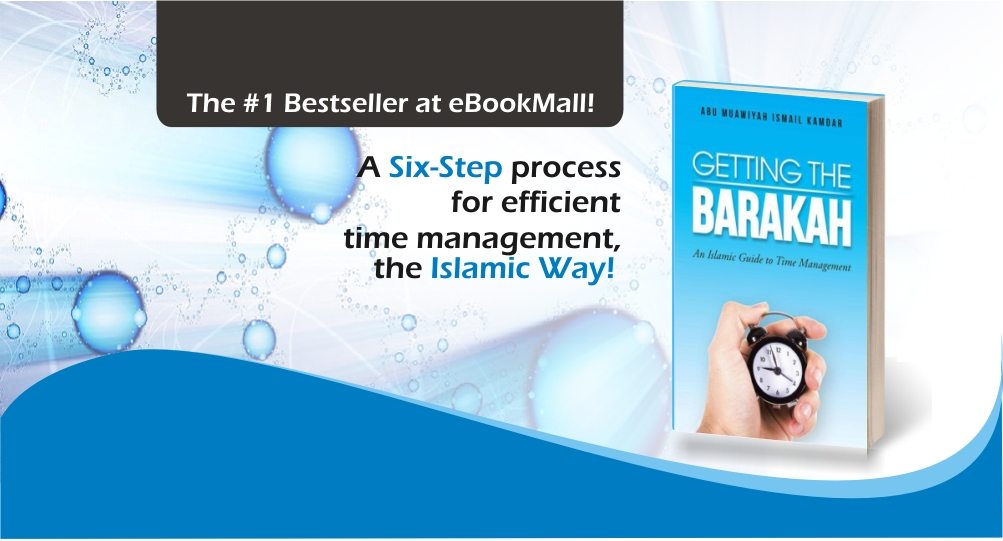Time Management Tips for Ramadan
PART 1 | PART 2 | PART 3
The countdown has begun and we have less than one and half months left until the greatest month of the year, Ramadan! I’m sure by now most of you are stock-piling the goodies for iftaar and downloading as many resources as possible for Ramadan preparation but the question remains “How can I manage my time well enough to get it all done?” That is what this series of articles is going to assist you with, inshaa Allah. Without any further intro, let’s jump right into our Time Management Tips for Ramadan:
1. Plan in Advance
Time Management is divided between planning and application. Without adequate planning, there isn’t anything much to apply and the result is another Ramadan that just flies by. Don’t allow this to be such a Ramadan. You have a few weeks to plan this properly, so let’s start working on our plans now.
To plan for Ramadan, we need to be clear regarding the goals (Maqasid) of Ramadan. As per the Qur’an, we know that fasting has been obligated on us to increase our Taqwa (God-consciousness) and that the Qur’an was revealed in Ramadan as a guidance for mankind. (See Surah Al-Baqarah, verses 183 and 185)
This means our overall objective of Ramadan should be an increase in Guidance and Taqwa. Every goal you formulate must work towards these two ends. With this end goal being clear, let’s move on to the next step.
2. Calculate how much Ibaadah time you will have daily
Ideally, we all want to spend Ramadan performing acts of worship 24/7, but this isn’t realistic and most of us have other obligations that we need to take care of as well. As the zeal dies down towards the middle of Ramadan, many people get caught up in their work, family responsibilities and rest, resulting in less Ibaadah (acts of worship) being done than initially desired.
This can be avoided by working out in advance how much time you will have daily for Ibaadah, then setting goals to get that much Ibaadah done minimum daily. The formula is simple: 24 Hours – (Sleep time, Work Time, Family Responsibility) = Ibaadah time.
For example, if you need six hours of sleep daily, work an eight-hour job every day and spent at least an hour helping the children with their homework, add in time for eating Suhoor and Iftaar, time spent in traffic and rest time after eating. The average person can free up between four to six hours a day for Ibaadah in Ramadan. (Makes me wonder why we can’t do the same outside Ramadan)
Let’s work with a smaller number though, as many people have other responsibilities like preparing meals and visiting relatives. Let’s bring it down to a minimum of three hours Ibaadah daily. If you work out that you just have three hours for extra Ibaadah every day in Ramadan, that is still enough time to accomplish some major goals. Multiply three by 29 and you get 87 hours of Ibaadah. 87 hours of optional Ibaadah in one month can transform your life and increase your Taqwa dramatically.
This means if you just schedule in an hour of Qur’an reciting, an hour of studying Islam and an hour for dua and Dhikr, you can really get a lot done if you stick with that for the entire month. This brings us to point number three.
3. Set Clear Goals
Now that you know the overall goals of Ramadan and how much time you have available daily to chase these goals, the next step is to set S.M.A.R.T goals to dedicate this time to. S.M.A.R.T means that the goal is specific, measurable, attainable, realistic and time-bound. Let me give you an example.
If you make it a goal to study some Tafsir this Ramadan, the problem with this goal is that it is too vague (which Tafsir), not measurable (How many pages), and not attainable or realistic (does one page of Tafsir fulfill the goal or five books of Tafsir?)
A S.M.A.R.T goal would be: I want to complete studying this 800-page book of Tafsir this Ramadan. In order to complete 800 pages in 29 days, I need to read an average of 28 pages a day. This goal is:
Specific – It is a specific book of Tafsir you plan to read
Measurable – It is easy to measure and keep track of 28 pages daily
Attainable – It is possible to read 28 pages of Tafsir every day if you dedicate an hour to reading daily
Realistic – The book is at your level so it won’t be too difficult to read
Time-Bound – Ramadan takes care of this naturally as all Ramadan goals are time-bound to 29 days
Set a series of goals like this and you will have a clear concrete plan to follow for the entire month of Ramadan. As for which times of the day to dedicate to each goal, that will be discussed in Part 2 of our tips for Ramadan.
Shaykh Ismail Kamdar is the author of Getting The Barakah: An Islamic Guide to Time Management, available exclusively via Islamic Self Help.




